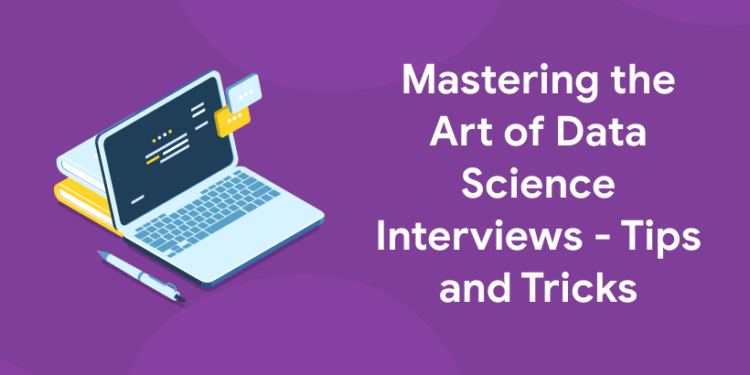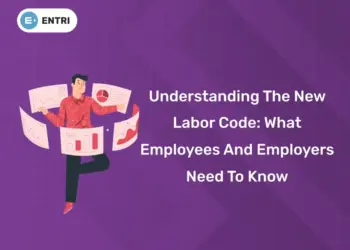Table of Contents
Job interviews can be intimidating for many people, whether you’re just starting out in your career or looking to change careers. You may improve your chances of success by mastering the art of the job interview, however, with the accurate preparation and attitude.
Data science interviews can be challenging. Since every organization has a different demand for a data scientist, you must prepare extensively. To some, it’s a Ph.D. student, but to others, it’s an expert SQL user.
Do Your Research
Make sure you’ve done your research on the company and the position you’re seeking for before you enter the interview room or Teams call.
While job interviews can be nerve-wracking and daunting, being well-prepared and feeling confident can help. Some of the explanations for why research is so crucial are as follows:
- To prepare pertinent inquiries to put to the interviewer: You can prepare pertinent interview questions once you’ve done your homework on the firm and the job. You may show that you are interested in the position and that you are knowledgeable about the firm by asking intelligent questions. Additionally, it demonstrates your participation in the interview and your sincere interest in the position.
- Avoiding surprises and being ready for any questions- You may prevent surprises and be ready for any questions the interviewer may ask by researching the business and the position. You can prepare responses that highlight your abilities and experience by anticipating the questions that might be asked. You may feel more in charge and self-assured as a result during the interview.
- To customize your responses to the demands of the company- You can personalize your responses to their particular demands by doing your research on the firm and the position. You might emphasize how your qualifications fit the demands of the position and the company’s objectives. This can demonstrate to the interviewer that you are a good fit for the position and that you can benefit the business.
- To show that you are interested in the company: By doing research on the organization and the job, you are showcasing your excitement for the position. You can demonstrate that you’ve done your research on the organization’s background, core principles, mission, and most recent accomplishments. Additionally, you can learn more about the corporate culture, which might assist you in determining whether it’s a suitable fit for you.
- To distinguish oneself from other candidates- You may distinguish yourself from other prospects by doing your research. It demonstrates your initiative, attention to detail, and dedication to the position. Additionally, it can show that you are prepared to put up extra effort in your interview preparation, which can impress the interviewer and raise your chances of landing the job.
Ready to take your data science skills to the next level? Sign up for a free demo today!!
Tips for doing your research before a job interview:
- Visit the company’ website to learn more about its past, current mission, and recent accomplishments.
- To find out more about the company’s culture and beliefs, visit their social media profiles.
- To learn more about the company’s current ambitions and difficulties, read stories about it in trade journals.
- Read the job description and look up related positions in the industry to learn more about the position.
- Investigate the interviewer’s past and position within the organization using LinkedIn.
- Prepare inquiries for the interviewer that are pertinent to the organization and the position in advance.
- If time is of the essence, consider using ChatGPT to study the organization you are applying for.
Prepare Your Answers
1: Which of the following algorithms is most suitable for classification tasks?
To impress the interviewer and improve your chances of getting the job, you must prepare for the interview. Practice your responses to typical interview questions is one approach to get ready. You can feel more assured, express your ideas more precisely, and prevent stumbling over your words by practicing your responses. In this article, we’ll look at the benefits of practicing your responses in advance of a job interview and offer some advice on how to do it successfully.
- To improve your responses: You can improve your responses by practicing them before a job interview so that they are crystal clear, succinct, and targeted at the job criteria. You can omit any irrelevant information and emphasize the most important and outstanding features of your experience. You can keep on topic and prevent rambling during the interview by editing your responses.
- Prior to a job interview, preparing your responses might help you gain confidence. You are more likely to feel composed and in charge throughout the interview if you are well-prepared. Additionally, you’ll feel more assured in your capacity to express yourself clearly and reply to any unexpected inquiries.
- Practice your responses so you can anticipate inquiries and be ready with thoughtful responses. This will help you anticipate questions and be ready with thoughtful responses. You’ll feel more prepared and at ease during the interview if you do this. Preparing for questions in advance will help you avoid being taken off guard and improve your ability to respond with well-thought-out responses.
- It’s best to practice your responses in order to eliminate awkward pauses and fillers like “um” and “uh.” These fillers could give the impression that you’re unprepared and unconfident. You can get rid of these fillers and react with replies that are lucid and succinct by practicing your responses.
- Practicing your responses might help you stand out from other candidates and make an impression. It enables you to give intelligent, articulate, and pertinent responses that highlight your abilities, knowledge, and credentials. This can make a good impression on the interviewer and improve your chances of getting hired.
Tips for practicing your answers before a job interview:
- Prepare responses to interview questions by writing them down.
- Either by yourself or in a group with a friend or family member, practice your responses aloud.
- To make sure your comments are inside the allotted time, time yourself.
- To find areas for growth, videotape yourself responding to questions and then listen to the recording.
- Focus on giving replies that are succinct, pertinent, and that highlight your qualifications, experience, and skills.
🚀 Start Coding Today! Enroll Now with Easy EMI Options. 💳✨
Equip yourself with in-demand skills to land top-tier roles in the data-driven world.
Start Learning Now with EMI OptionsTop Data Science Interview Questions
To feel confident at your next data science interview, preparation is essential. A selection of some of the most typical data scientist interview questions is provided here, covering topics like coding, data modelling, algorithms, and statistics.
Coding and Programming Questions
Regardless of the organization you work for, knowing how to code is a necessity for data science positions. Interviewers will therefore probably inquire about your prior knowledge of popular programming languages like Python, R, and SQL. These problems typically include manipulating data using code created to evaluate your programming, inventiveness, and problem-solving abilities. You’ll probably need to utilize a computer or whiteboard during the interview to perform the tasks, though you might also be asked to discuss the issues out loud and explain your reasoning. These are some possible coding and programming interview questions that you can encounter:
- “What would you do if the same query produced a categorization, an aggregation, and a ratio?”
- The Jaccard similarity between two sets is calculated by dividing the intersection’s size by the union’s size.
- “Write a program in your choice of language that prints numbers from 1 to 50.”
- “Using a basic SQL query, list all orders, including customer information.”
Data Modelling Techniques Questions
After coding, you’ll most likely be asked questions on data modelling techniques during your job interview. Interviewers will likely focus on your familiarity with various data models and their applications. These kind of interview questions are used to assess your understanding of developing statistical models and putting machine learning models, like decision trees, logistic regression models, and linear regression models, into practice. Here are some inquiries you might be asked during your interview:
- “How should a deployed model be maintained?”
- Can you think of any drawbacks to utilizing the linear model?
- “What does regression regularization mean?”
- “What exactly is a confusion matrix?”
Experience the power of our machine learning course with a free demo – Enroll Now!
Questions on Algorithms
The majority of the work you’ll do as a data scientist is supported by algorithms. Algorithm-related questions are generally intended to gauge your problem-solving skills and expertise. As a result, during your interview you will probably be asked to explain the goals of various algorithms, how they could aid in the resolution of various problems, and to demonstrate your familiarity with various machine learning methods. So, make sure to brush up on your knowledge of popular methods like logistic regression and linear regression. Despite the fact that the specific questions you’ll be asked will differ from interview to interview, the following are some of the most typical formats they might take:
- The question is, “How would you reverse a linked list?”
- Which algorithm is responsible for the “People who bought this also bought…” suggestions that can be found on numerous e-commerce websites?
- What is the best algorithm to employ if we want to forecast the likelihood of dying from heart disease based on three risk factors: age, gender, and high cholesterol levels?
- How frequently ought an algorithm to be updated?
Statistics and probability questions
A fundamental idea in data science is statistics. So it should come as no surprise that interviewers would assess your understanding of statistical theory and related principles by asking you questions about statistics during a data science interview. Make sure to brush up on your knowledge of common statistical analysis techniques and topics before the big day because this is your time to demonstrate it. Random sampling, systematic sampling, and probability distribution are a few frequent subjects to go over. These kinds of queries could appear during your interview in the following formats:
- “What exactly is the law of large numbers?”
- “What exactly is selection bias?”
- What steps are involved in creating a random forest?
- “What’s an example of a data type with a non-Gaussian distribution?”
Questions on product sense and business applications.
In the end, most businesses are more concerned with the effect that skilled data scientists will have on their bottom line than they are with furthering academic research in the area. In essence, you should anticipate being asked how your work may aid in the expansion of the company and the advancement of the products or services it offers. These inquiries are specific to your company and the application of data science. By successfully responding to them, you can show that you understand data science in practice rather than simply theoretically. Although the questions will probably be specific to the position, utilize the following list as a guide:
- “We want to enhance a brand-new feature for our product. What indicators would you monitor to determine whether it’s a good idea?
- How may we accomplish the goal of growing X metric on X feature?
- Tell me about a time when you worked to match data initiatives with organizational objectives.
- Which metric would you employ to assess the effects of a search toolbar change?
Dress Professionally
First impressions matter a lot, and what you wear to an interview even if it’s a video call! can significantly affect how you’re seen.
- The way you dress is sometimes the first thing an interviewer will notice about you. First impressions are important in a job interview. You may make a good first impression and show that you respect the business and the interview process by dressing properly.
- It demonstrates your professionalism—having a professional appearance can help you convey your attention to detail and professionalism. It demonstrates that you are committed to making the greatest impression possible and that you are taking the interview seriously.
- It represents the company culture—the expectations for dress code at work can also be reflected in the way you dress. You can decide what to dress to the interview by doing some advance research about the business and the sector.
- Dressing professionally can also help you stand out from other prospects because it sets you distinct from them. The interviewer will be impressed by your dedication to the process and your attention to detail, which can improve your chances of getting the job.
Tips for dressing professionally for a job interview:
- Before the interview, do some research on the corporate culture and dress code.
- Pick for outfits that are well-fitting, clean, and pressed.
- Put on a pair of acceptable, comfy shoes.
- Make sure your nails, hair, and overall appearance are kept up and polished.
- Don’t strive to be someone else; simply dress as yourself!
Be Enthusiastic and Confident.
It’s critical to convey your passion and confidence for the position and the organization throughout the interview. This is possible by:
- Establishing eye contact or demonstrating engagement
- Speaking with conviction, emotion, and demonstrating your expertise
- Employing a confident body language.
- Asking insightful questions about the business and the position to demonstrate your interest in the position.
- Demonstrating an interest in the interviewer, their work, and their past experiences at the organization.
Follow Up
Make sure to send a thank-you email or letter after the interview. This demonstrates your appreciation for the chance to interview and reaffirms your interest in the position. Additionally, you can take advantage of this chance to bring up any points you might have missed throughout the interview.
Looking for a Data Science Career? Explore Here!












